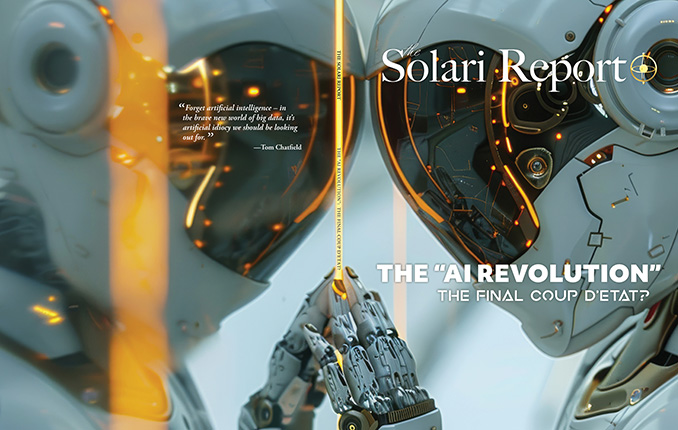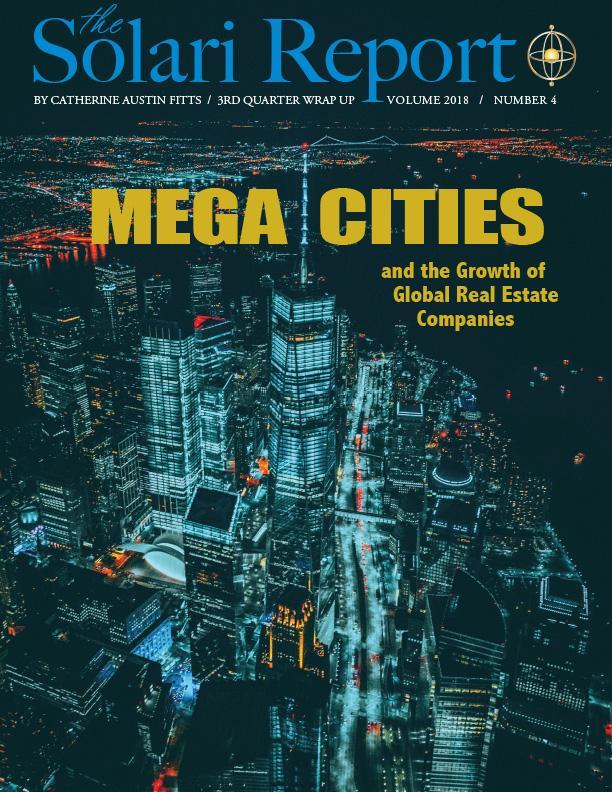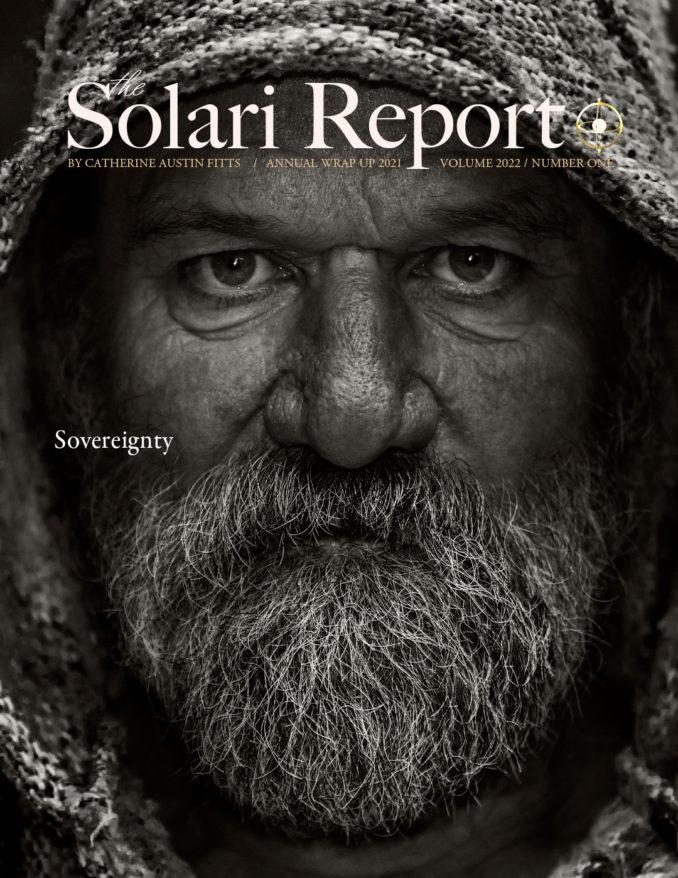
The “AI Revolution”: The Final Coup d’Etat? is now available to Solari Report subscribers!
The hype of an “AI revolution” has become impossible to ignore. This report, with thought-provoking contributions by investigative journalist Whitney Webb, Swedish author and researcher Jacob Nordangård, and Catherine Austin Fitts, invites readers to consider whether artificial intelligence is indeed reshaping the world, as its prognosticators have pledged. As Fitts asks, “Is AI a very big deal or the biggest cover story yet? Perhaps it is both.”








I read part of this report during my travels this week. The information from the Kissinger book is disturbing. I will be curious to read overtime what the world could look like for those of us who opt out.
It was interesting to observe people going through TSA security again. I always opt out of the digital photo. I don’t see anybody else do that. However, today I had a couple people ask about it. One guy didn’t know it was voluntary. Another guy wanted to talk more about it, but we were traveling on separate planes. I told him to look up Catherine to learn more about the risk of the digital concentration camp. The next time I travel, I think I will bring some articles with me on this topic and hand them out when I get questions. We need to spread the word!
I really liked this but this has some misunderstanding of AI systems. It hints at the beginning at the real issue with a digital intermediator using access to big data to manipulate situation to create bad outcomes.
The rental car algorithm is not an AI. This is an expert system. i.e., they’ve pulled some financial data on victim, then looked at the time and situation of what they can manipulate. Then it was implemented purposely and systematically in the company. Because there is a digital intermediary in the booking, these optimizations can be done, however it is not AI, although it could could be optimized using machine learning. Likely at some point it is. I attended a talk by data executive that work for British Airways and then the Premier Inn hotel chain in UK. For flights and hotels they have a basic algorithm, that increases the price of both flights and room booking as the travel date approaches and the rooms or airline seats get filled. It also has coding to keep the price low if plane or hotel is vacant. They also have a lot of past data to work with to see what optimizes for best profits. Of course those are basics, if they decide to be unscrupulous, they can also add in other thing for times of high booking or when there is a signal a person is desperate.
Similar with getting an improper price at a dollar store check out. This can use an advanced bit of code, but might not necessarily be AI.
So one issue is defining what AI actually is. Is it a sophisticated bit of code? Is it a system that implements machine learning algorithms? It is a very advanced machine learning algorithm that continuously learns? Part of what makes the discussion of AI problematic is that the definition is what the composition of AI is has a vague definition. Most people aren’t not technically sophisticated enough to know the differences.
However, the bigger issue is likely more in creating digital intermediaries. This happens already in many many way. When you search the internet with Google, we are not just getting the best results for a term. We are getting a result that has been tailored to what Google knows about us, our location, the time of day, what it is interested in personally serving to us. Covid more than anything was a trial at putting digital intermediaries in all of our interactions and then isolating us so we could not see if other people were being fed the same information as we were. A main purpose of Facebook was to create an intermediary in your relationship with friends to exact and and then manipulation your emotional connections. As dating life has moved to apps, how much of mate choices have been chosen by algorithms? How much do we already rely on this systems, for our news, for travel, for restaurant recommendations, for who we spend time with? All of it tracked. All of it manipulated.
I agree some are expert systems. For some it looks to me they are integrated significant data from multiple sources about that person. In theory it could be an expert system but given the extent and reach of the data I believe they are using AI.